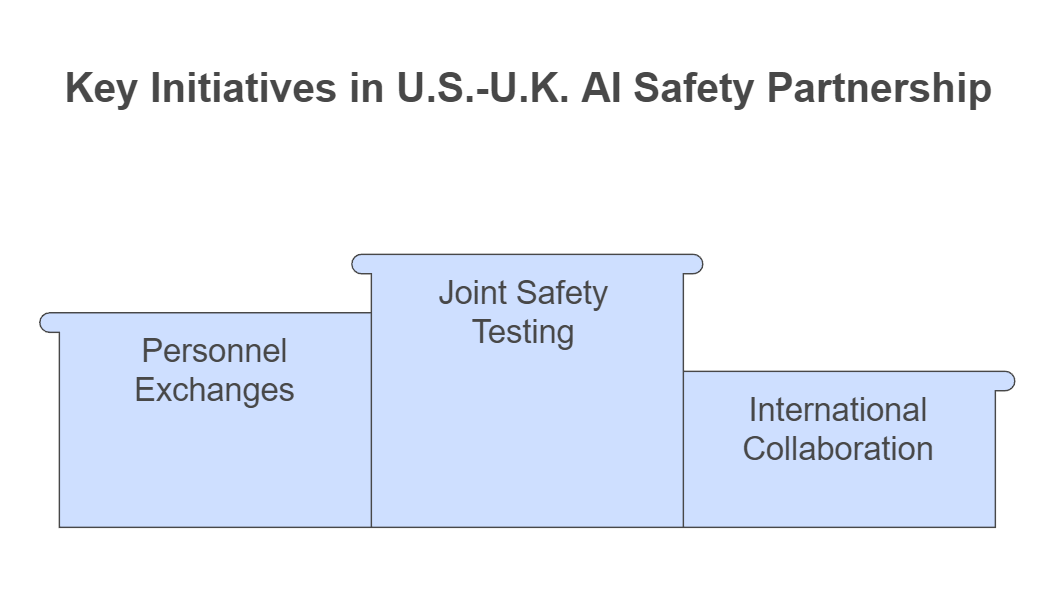
The United States and the United Kingdom have announced a partnership to jointly conduct safety tests on advanced AI models. This collaboration reflects a shared commitment to addressing potential risks associated with AI technologies.
The United States and the United Kingdom have formalized a partnership to advance the safety of artificial intelligence (AI) systems. On April 1, 2024, U.S. Commerce Secretary Gina Raimondo and U.K. Technology Secretary Michelle Donelan signed a Memorandum of Understanding (MoU) to align their scientific approaches and collaboratively develop robust evaluation methods for AI models, systems, and agents.
Key Aspects of the Partnership:
- Joint Safety Testing:
- The U.S. and U.K. AI Safety Institutes plan to conduct at least one joint testing exercise on a publicly accessible AI model. This initiative aims to build a common approach to AI safety testing and share capabilities to effectively address potential risks. Commerce
- Personnel Exchanges:
- The partnership includes exploring personnel exchanges between the two institutes to leverage a collective pool of expertise, enhancing collaborative efforts in AI safety research. Commerce
- International Collaboration:
- Both countries have committed to developing similar partnerships with other nations to promote AI safety globally, recognizing the importance of international cooperation in addressing the challenges posed by rapidly advancing AI technologies. Commerce
Background:
This agreement builds upon commitments made during the AI Safety Summit held at Bletchley Park in November 2023, where the U.S. and U.K. announced the creation of their respective AI Safety Institutes. The MoU formalizes the collaboration between these institutes, marking a significant step toward ensuring the safe and trustworthy development and use of advanced AI systems.
Implications:
- Standardization of Safety Protocols: The partnership aims to harmonize AI safety testing protocols, facilitating consistent safety standards across both nations.
- Enhanced Risk Mitigation: By sharing expertise and resources, the U.S. and U.K. can more effectively identify and mitigate potential risks associated with AI technologies.
- Global Leadership in AI Safety: This collaboration positions both countries as leaders in the global effort to develop and implement AI safety measures, potentially influencing international AI safety regulations and standards.
In summary, the U.S.-U.K. partnership on AI safety testing represents a proactive approach to addressing the challenges and risks associated with AI development, emphasizing the importance of international cooperation in fostering safe and responsible AI innovation.








